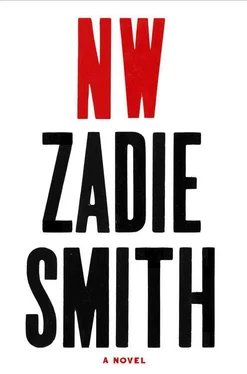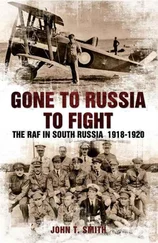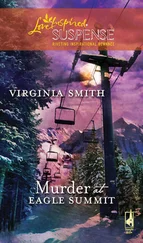“I’m a robot. There’s a competition. Maria made them. We finished up the foil.”
“Both robots.”
“No! Spike is a robot dog. I’m the main robot. It starts at two p.m. It is five pounds.”
If she kept receiving these kinds of clear, helpful descriptions of phenomena from her children there was a possibility they might all get through the next few hours. The next few years.
“What time is it now?” Natalie’s children waited for her to check her phone. “We can’t stay here. It’s a beautiful day. We need to get out.”
• • •
Each child had their own room — there was enough space in the house for them all to sleep alone — but ignorant of the logic of capital the children insisted on sleeping together, and in the smallest room, in bunk-beds, surrounded by a mountain of their own clothes. Natalie dug through this mess looking for something suitable.
“I don’t want to get changed,” said Naomi.
“I don’t want!” said Spike.
“But you look ridiculous,” argued Natalie.
In her daughter’s eyes Natalie saw her own celebrated will reflected back at her, at twice the intensity. Downstairs in the front hall she put the robot dog in the buggy and had an argument with the robot about whether or not it should be permitted to take the scooter. She lost that one, too. She closed the front door and looked up at an expensive pile of bricks and mortar. Soon it would surely be divided, have all its contents boxed and redistributed, its occupants separated, resettled. Finally a new arrangement of optimistic souls, intent on “building a life” for themselves, would cross its threshold. And in a sense it was not difficult to project oneself into the future in this way, so long as you stuck to abstractions.
Two minutes down the road, Natalie’s daughter grew bored of her scooter and asked for a piggy-back. Natalie hooked the scooter to the buggy and accepted her daughter upon her back. Naomi stretched her head round so her soft cheek pressed against her mother’s face and her wild hair flew in her mother’s mouth.
“Why do you insist on taking the scooter if you know you’re not going to want to use it?”
The child spoke with her wet lips brushing the flesh of her mother’s ear: “I don’t know what I’m going to want until when I want it.”
The mother looked into her children’s wire baskets.
Naomi: Toothpaste, rubber ball, sticker set, a big red pitchfork, book.
Spike: Rubber ball, rubber ball, flashing plastic duck, Brillo pads, plastic sword.
Five pounds each, five items. Poundland. Natalie could remember doing this with Marcia in Woolworths, back in the day, but then it was one pound, and you got so much more for your money, and everything had to be “useful.”
“I’m interested in the decision-making process here.”
“I helped Spike choose. But he chose that.”
“You don’t want a Brillo pad, honey.”
“I DO WANT.”
Natalie picked up the pitchfork.
“It’s for Halloween.”
“Nom, it’s August.”
“I DO WANT!”
“Seriously,” said Naomi, with a very serious look, “it’s a bargain.”
At the counter they were selling the Kilburn Times for 25 pence.
ALBERT ROAD SLAYING.
FAMILY PLEA FOR WITNESSES
On a tatty sofa a Rastafarian gentleman sat holding a picture of his adult son. Beside the father sat a beautiful young woman, clutching the left hand of the father between her own. There was a depth of misery in both these faces that Natalie found she could not look at in any sustained way. She turned over the top copy and folded the paper in half.
“And one of those,” she said.
• • •
They had time to kill. Natalie had no idea what was to happen to them all after the time was killed. They walked to the pet shop. Natalie manumitted robot dog. She watched robot and robot dog run down the entrance ramp, to freedom. She unfolded the paper and tried to walk and read and push the buggy and keep an eye out for two beautiful children as they wandered about the cavernous store talking to lizards or arguing about the difference between a hamster and a gerbil. She felt an urge to call Frank — he had a stronger gift for reality than her, especially for chronology — but calling Frank would involve explaining things for which she had no explanation. Two nights ago. Six p.m. Albert Road. Her eyes kept returning to the same block of text, trying to squeeze a little more meaning from it. She could not tell whether she was trying to insert herself into somebody else’s drama — as Frank often said she was wont to do — or whether she really knew something of what had happened at that hour on that road. Now she tried to draw the word “Felix” out of the photograph within a photograph. The dimples and the cheery, laddish expression. The crisp black and yellow hooded top. It was easy to do. He was local, and she recognized him, without being able to say anything else definitive about him. Except perhaps that he looked exactly like a Felix.
She raised her head from her newspaper. She called out. Nothing. She walked to the fish, the lizards, the dogs and the cats. Nowhere. She reassured herself she wasn’t the hysterical type. She walked at only a slighter faster pace back around the circuit she had just completed, calling their names in a perfectly reasonable tone. Nothing, nowhere. She abandoned the buggy and moved quickly to the counter. She asked two people a very simple question to which they replied with an infuriating lack of urgency. She went back to the fish, and the lizards, shouting. She understood that her children were not kidnapped or murdered or likely to be further than fifty feet from where she was presently standing but running through this logical series of statements did nothing to halt the falling away of everything that now happened inside her. She peered over into the pit that separates people who have known intolerable pain from people who haven’t. Instantly she was sweating all over her body. A man in an apron came over to tell her to calm down. She pushed past him and ran out into the street. And it was into this pit that she had so nearly placed Frank, her children, her mother, Leah. Anyone who had ever cared for her.
She took a step to the left, and stalled: it was a direction instinct for some reason rejected. She reversed course and ran into the next-door warehouse, and down another ramp into another cavern, filled with faceless mannequins in hijab and great swathes of black silk folded and arranged in many square piles on long shelves. She ran without any design around the racks of fabrics and scarfs and embroidered gowns and then back into the street and back down the ramp into the pet shop where she spotted them at once, sitting on the floor right at the back in front of the rabbit hutches.
She fell to her knees and gripped them with both hands. She kissed them all over their faces, an offering they accepted without comment.
“Can you eat a rabbit?” asked Naomi.
“What?”
“Did you ever eat a rabbit?”
“No… I mean, people do. I don’t. Wait — that’s my phone. You shouldn’t disappear like that. You freaked me out.”
“Why don’t you eat rabbits?”
“Honey, I don’t know, I just never wanted to. Let me just answer this. Hello?”
“You eat pigs and chickens and lambs. And fish.”
“You’re right — it doesn’t really make sense. Hello? Who’s this?”
Michel. She could hear at once he was very distressed. She stood up and took a few steps backward from the children and held a finger up to signify that they should stay where they were.
“She’s lying out there in the sun,” said Michel. “She won’t speak. I don’t know what to do anymore. Why does she hate me?”
Читать дальше











